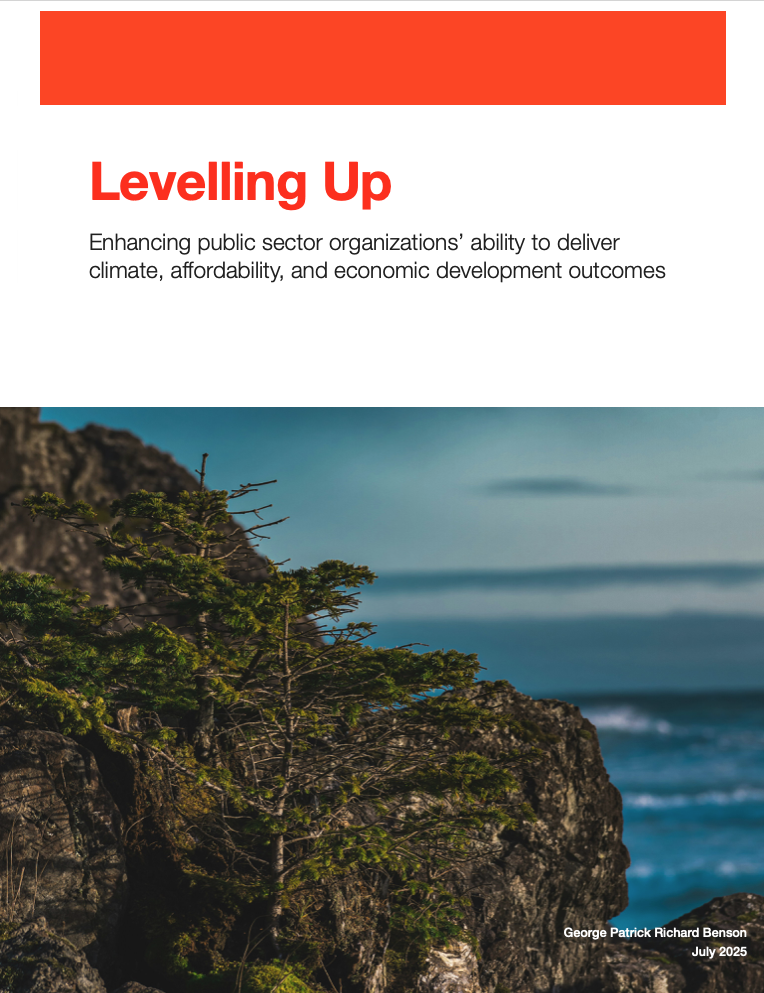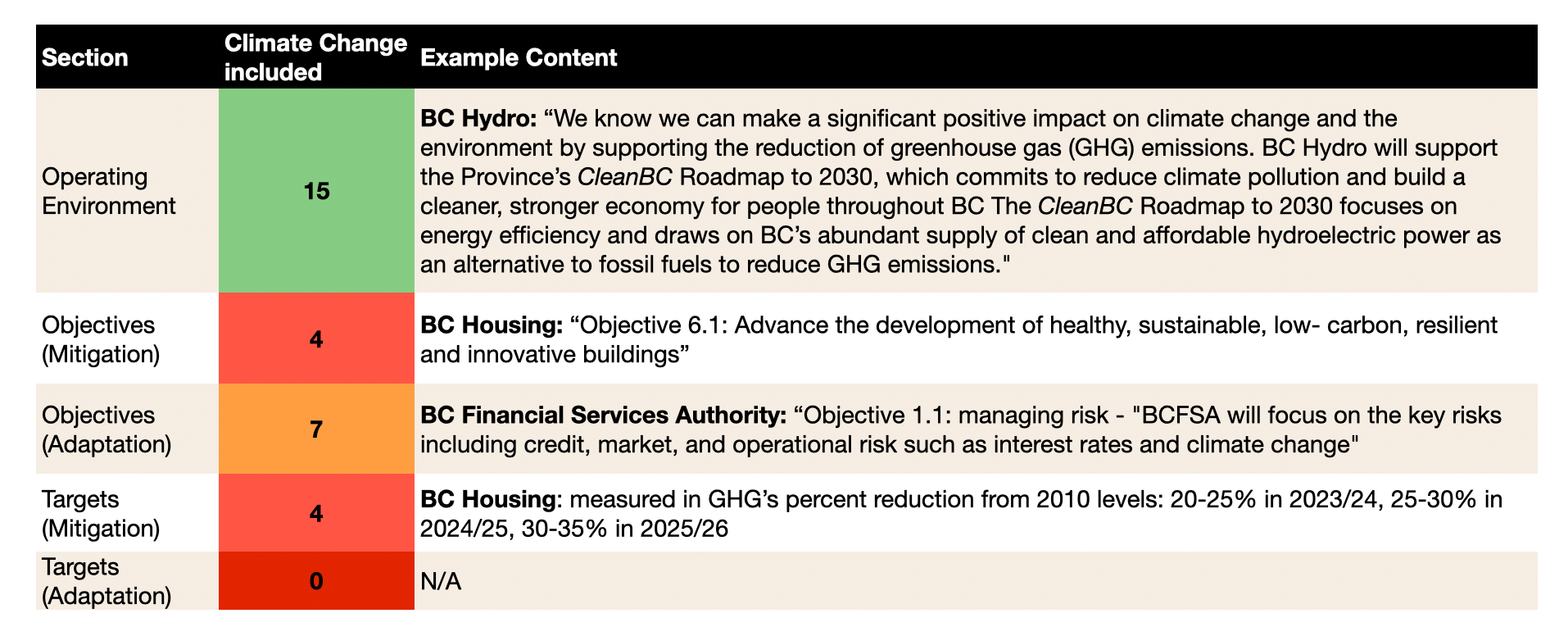
If British Columbians want to effectively navigate the global energy transition and increase our climate-resilience, we need to effectively use the full capacity of the public sector. Today, it's easier to find out the carbon dioxide equivalent of how much paper a crown corporation uses, for example, than how future forest fire seasons may impact its workload. This needs to change.
Building a New Climate Governance Framework in B.C.
As the B.C. Government reviews the provincial climate plan, CleanBC, I believe it needs to bring new attention and focus to how public sector organizations contribute to climate action and:
- Prioritize, differentiate, and precisely identify the climate action roles and responsibilities of public sector entities (and their appointed boards); and create new, publicly accessible coordination fora (e.g., a B.C. “Conference of Parties”);
- Co-develop and mandate the use of common assumptions and scenarios from which coordinated responses across PSOs can be developed, and reapportion existing resources and tools (e.g., offsets) to maximize efficiency;
- Reimagine the Climate Change Accountability Reports (CCARs) and combine disparate public datasets into coherent, scalable informational tools (e.g., digital twins) to enhance coordinated action across government.
These recommendations come out of a year's worth of work that I am excited to unveil today. Working with two brilliant research assistants, Tessa Angelis and Ashley Kelsey, over the past year we have used B.C.'s 29 crown corporations as a case study in how climate action is governed in the public sector today, and how we might do it better in the future.
Levelling Up Climate Action in B.C.
Levelling Up is a systematic review of how B.C.’s crown corporations are told to act on climate change, and if and how those expectations show up meaningfully in their strategies, plans, and reporting.

Levelling Up's premise is simple: if we really want to get the full range of climate action benefits (e.g., jobs, affordability, resilience), then we don't just need good climate policies, we need effective climate governance.
The findings are striking: despite having individuals and teams within crown corporations doing incredible – sometimes globally leading – work, crown corporations do not have a coherent or shared view of how climate change and the energy transition will impact them, or what they should do about it. In particular, we found:
- B.C.'s Crown corporations (and public sector organizations more generally) do not have a framework to coherently prioritize, differentiate, and coordinate their action on climate change.
- Crown corporations do not have a common set of assumptions, data, or scenarios to shape their understanding of their “operating environment” when it comes to climate change and its impacts.
- In both the service plans and CCARs, no crown corporation has achieved a systematic integration of climate-related goals, targets, and performance measures. This is particularly worrying when it comes to adaptation and resilience work, for which no crown corporations have any (at least publicly reported) metrics or ongoing evaluation.

At present we risk not only duplication or poor use of resources across the public sector, but working at cross-purposes without organizational cohesion under a thematically unified, low-carbon resilience approach. Everyone needs to work together, and we need to decarbonize and adapt to climate change at the same time and in complimentary ways.
Climate Action Needs to be Business as Usual
As I try to stress throughout the report, these gaps and misalignments are not only a climate problem.
When organizations are not provided effective tools to integrate climate change, they may focus on low-effort add-on activities, like counting paper and buying offsets, instead of integrating it into how they conceive of the operating environment for their core mandate. Failing to do so can have cataclysmic consequences.
The BC Financial Services Authority is, thankfully, a bright spot here. They're increasingly looking at how the physical risks of climate change will impact their day-to-day financial regulatory duties at both the consumer level for insurance and mortgages, but also in the health of the provincially-regulated credit union system.
But there is still much more potential, and increasing need:
Consumer Protection BC may be asked some day to ensure contractors discuss trade-offs between heat pumps and gas furnaces more fairly. Perhaps Legal Aid BC will some day provide specific guidance and support around renters and the "right to cool."
These are all things that could directly fulfill on the already-existing mandates of these organizations, and support the people they serve, simply by fully integrating climate considerations at the strategic and programmatic levels. Though the risks and accompanying level of effort will (and must) vary from entity to entity, coherency and coordination is needed at the highest levels to ensure we get things right, particularly as the global operating context today shifts so rapidly.
Get Involved
The CleanBC Review, delivered by the talented and pragmatic Merran Smith and Dan Woynillowicz, provides an opportunity not only to share the findings we've uncovered in this report, but also to hopefully spark a deeper dialogue about what coordinated, effective climate action across the public sector (and beyond) looks like.
I encourage you to take a look at the report and to share your ideas with the CleanBC review team before July 18th.
Sign up for George Patrick Richard Benson
Strategist, writer, and researcher.
No spam. Unsubscribe anytime.
